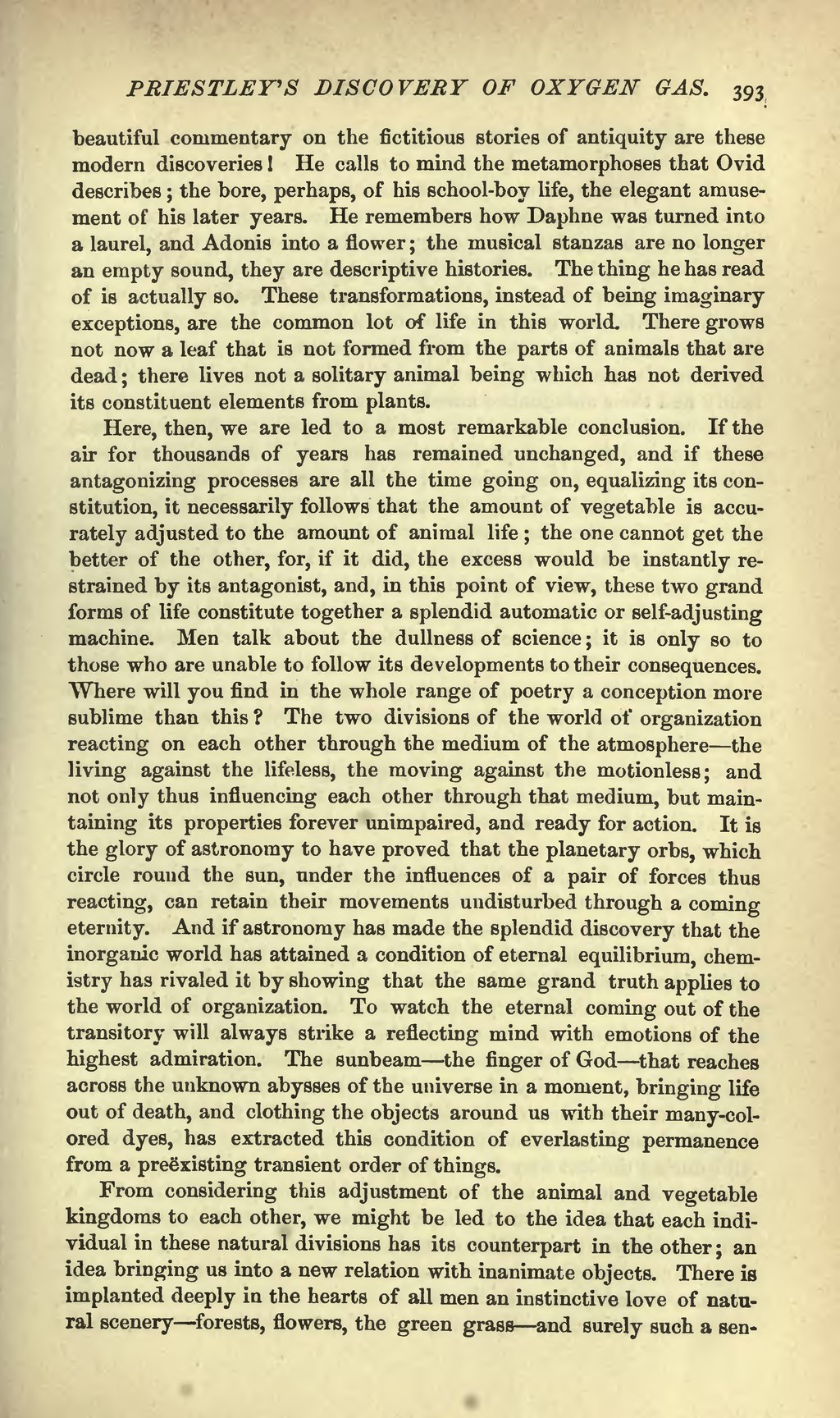beautiful commentary on the fictitious stories of antiquity are these modern discoveries! He calls to mind the metamorphoses that Ovid describes; the bore, perhaps, of his school-boy life, the elegant amusement of his later years. He remembers how Daphne was turned into a laurel, and Adonis into a flower; the musical stanzas are no longer an empty sound, they are descriptive histories. The thing he has read of is actually so. These transformations, instead of being imaginary exceptions, are the common lot of life in this world. There grows not now a leaf that is not formed from the parts of animals that are dead; there lives not a solitary animal being which has not derived its constituent elements from plants.
Here, then, we are led to a most remarkable conclusion. If the air for thousands of years has remained unchanged, and if these antagonizing processes are all the time going on, equalizing its constitution, it necessarily follows that the amount of vegetable is accurately adjusted to the amount of animal life; the one cannot get the better of the other, for, if it did, the excess would be instantly restrained by its antagonist, and, in this point of view, these two grand forms of life constitute together a splendid automatic or self-adjusting machine. Men talk about the dullness of science; it is only so to those who are unable to follow its developments to their consequences. Where will you find in the whole range of poetry a conception more sublime than this? The two divisions of the world of organization reacting on each other through the medium of the atmosphere—the living against the lifeless, the moving against the motionless; and not only thus influencing each other through that medium, but maintaining its properties forever unimpaired, and ready for action. It is the glory of astronomy to have proved that the planetary orbs, which circle round the sun, under the influences of a pair of forces thus reacting, can retain their movements undisturbed through a coming eternity. And if astronomy has made the splendid discovery that the inorganic world has attained a condition of eternal equilibrium, chemistry has rivaled it by showing that the same grand truth applies to the world of organization. To watch the eternal coming out of the transitory will always strike a reflecting mind with emotions of the highest admiration. The sunbeam—the finger of God—that reaches across the unknown abysses of the universe in a moment, bringing life out of death, and clothing the objects around us with their many-colored dyes, has extracted this condition of everlasting permanence from a preëxisting transient order of things.
From considering this adjustment of the animal and vegetable kingdoms to each other, we might be led to the idea that each individual in these natural divisions has its counterpart in the other; an idea bringing us into a new relation with inanimate objects. There is implanted deeply in the hearts of all men an instinctive love of natural scenery—forests, flowers, the green grass—and surely such a sen-

